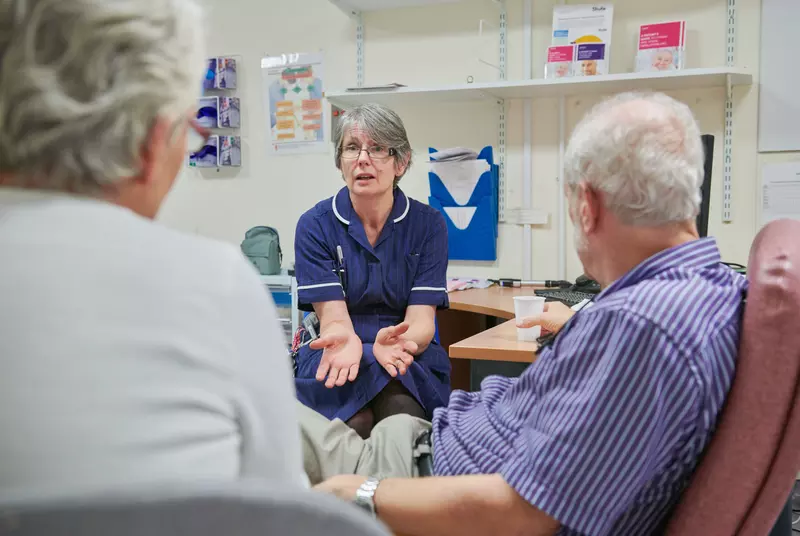Coming to terms with a Parkinson's diagnosis
Have you or someone you know been recently diagnosed with Parkinson’s? Here clinical neuropsychologist Jennifer Foley talks about how to manage your feelings and emotions.
For many people, it can take time to adjust when you’re diagnosed with Parkinson’s.
Getting used to living with a condition you may know little about and needing to take new medication can be difficult at first. You may also feel lots of different emotions, including:
- shock. You may not have expected the diagnosis or believe it’s true.
- relief. At getting the diagnosis after a period of not knowing what the symptoms were, or that it isn’t something more serious.
- anger, sadness or worry. You may have anxiety about what the diagnosis means for you or how symptoms might progress.
You may find that you experience different emotions from one day to the next. It’s also very common to try to ignore the diagnosis completely. All of these responses are completely normal.
The right information
It’s important to get the right information and support, when it’s the right time for you. Health professionals like a Parkinson’s nurse can provide a lot of useful information and support at this stage.
You can also read practical information on Parkinson’s UK’s website or printed resources, or contact the Parkinson’s UK helpline:
- Call 0808 800 0303
- Email [email protected]
After getting a diagnosis you may question what causes Parkinson’s and why you have it. We don’t yet know why people get Parkinson’s, and this can be hard to hear. It can also be hard to live with the uncertainty of how your condition will progress.
What can help
Rather than ignoring or suppressing normal feelings, try to acknowledge and accept them. Talking to others who understand what you’re going through, and hearing how other people have coped and navigated their diagnosis, can help you make sense of your emotions. This could be through a local Parkinson’s group or an online forum.
Some people find writing about their feelings and experiences useful, perhaps in a letter or a journal. It’s important to remember to look after yourself and make time for self-care. Some people find calming activities like mindfulness or deep breathing helpful, or relaxing exercises like yoga or tai chi. These can help reduce stress and improve your wellbeing.
Physical activity and exercise can also help, like going for walks, swimming or joining a fitness class. Regular exercise can boost your mood.
Adjusting to change
With time and support, people often feel more in control of their symptoms and find ways to manage their condition.
But adjustment can be an ongoing process. You may feel better or worse depending on how your symptoms are affecting you and what else is going on in your life. For example, if you develop new symptoms, you may feel shocked or angry. These feelings may then go away as you get more used to the symptom and get the right support to manage it.

What to do if you're struggling to come to terms with your diagnosis
For some people, the distress can be hard to shift. You may have lasting feelings of anxiety or low mood. At this stage, it’s important to reach out for help.
Talk to your GP, specialist or Parkinson’s nurse, who can look at ways to help you feel better. They may talk to you about different types of talking therapies, or medication that can help with how you feel.
Learn how people with Parkinson's have coped their own diagnosis.


